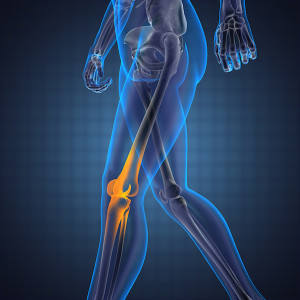
The inflammation of a tendon is known as tendonitis. This condition occurs when an individual overuses or injures a tendon. For instance, this happens often in athletics.
It usually occurs due to an acute injury with swelling. It typically impacts the knees, wrist, finger, elbow, thigh, and other areas of the body.
A person of any age can develop tendonitis. However, it is most common among adults who undertake significant sports activities. People who are older are vulnerable too as the tendons lose elasticity and weaken as a person ages.
Orthopedic Institute of the West, led by the accomplished board-certified orthopedic surgeon Dr. Brandon Gough, provides hip and knee surgery procedures to patients in Phoenix, Scottsdale, Arizona, and surrounding communities across the horizon.
KEY HIGHLIGHTS OF KNEE TENDONITIS
- Tendonitis typically occurs with overuse or injury leading to pressure on the tendons.
- Knee tendonitis is also known as housemaid’s knee or jumper’s knee.
- The treatment for this condition involves rest, ice and heat therapy, and OTC pain relievers.
- In the absence of treatment, tendonitis can lead to a rupture which may require surgical intervention.
WHAT IS TENDONITIS?
Tendonitis is a condition that involves painful swelling that usually occurs due to overuse. A tendon refers to a tissue that connects muscle to the bone. A tendon is tough, flexible, and fibrous and it can withstand pressure and tension. A ligament runs from bone to bone at a joint. In comparison, a tendon goes from muscle to bone.
Muscles and tendons work with each other to exert a pulling force. Ligaments and tendons are fibrous and tough. However, they are called soft tissue as they are softer in comparison with bone.
In case the sheath surrounding the tendon becomes swollen, instead of the tendon itself, it is known as tenosynovitis. Tendonitis can occur simultaneously with tenosynovitis.
TYPES OF TENDONITIS
Various types of tendonitis impact different areas of the body:
Patellar Tendonitis (Jumper’s Knee)Patellar tendonitis is a common injury or inflammation of the tendon that connects your kneecap (patella) to your shinbone (tibia). Your pain may be mild or severe.Anyone can get patellar tendonitis. But it’s such a frequent injury of athletes, especially those who play volleyball and basketball, that it’s called jumper’s knee. Among recreational volleyball players, an estimated 14.4 percent have jumper’s knee. The prevalence is even higher for top professional athletes. An estimated 40 to 50 percent of elite volleyball players have jumper’s knee.
Achilles Tendonitis
The Achilles tendon lies between the calf muscle and the heel. Achilles tendonitis is a standard sports injury. It may occur due to ill-fitting shoes or shoes that do not offer proper support to the foot. It is more common among rheumatoid arthritis patients.
Supraspinatus Tendonitis
In supraspinatus tendonitis, the tendon located in the top of the shoulder joint becomes swollen. This leads to pain when there is movement in the arm, specifically when there is an upward movement.
Certain patients may experience pain upon lying on the impacted shoulder at night. If there are other affected tendons in the same region, the patient may be experiencing a rotator cuff syndrome.
Tennis or Golfer’s Elbow
A standard symptom of lateral epicondylitis (tennis elbow) is the occurrence of pain on the outside of the elbow. The pain may also radiate down toward the wrist.
Medial epicondylitis (golfer’s elbow) is a condition which leads to pain on the inner side of the elbow. It occurs more commonly among avid golfers. The pain worsens when attempting to lift against a force. At times, the pain extends down to the wrist.
Devoted board certified orthopedic surgeon Dr. Brandon Gough receives patients from Phoenix, Scottsdale, Arizona, and other towns and cities in the golden state of Arizona for tendonitis.
For more information about hip and knee procedures and treatments by Arizona Board certified orthopedic surgeon, Brandon Gough, M.D., please click here or call us at 602-359-3088. Taking new patients in and around Phoenix, Scottsdale, Glendale, Tempe, Mesa and surrounding Arizona cities.


